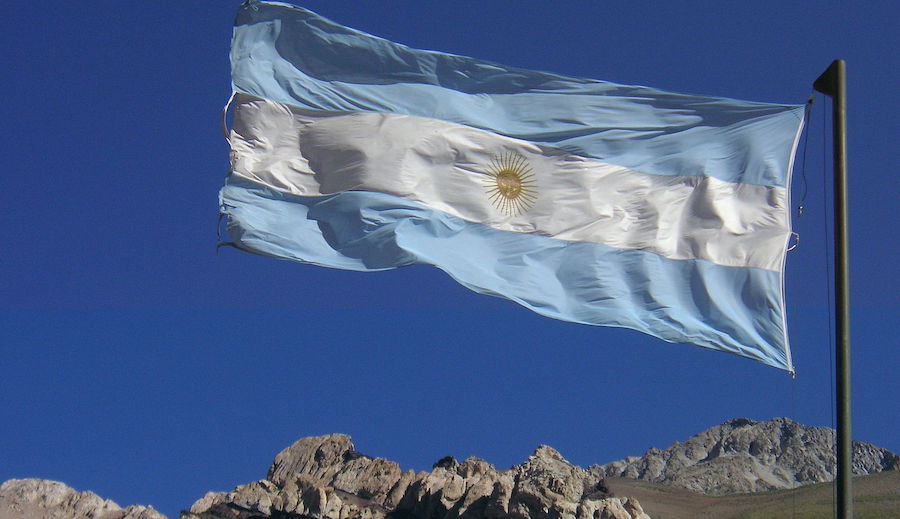RIO DE JANEIRO, BRAZIL – The tensions do not reach nearly as far as in the case of Daniel Ortega, the Nicaraguan president, who a few days ago – according to high-level official sources – even rejected a call from President Alberto Fernández without a word of courtesy.
However, the once privileged relations between Argentina and the Venezuelan state of Nicolás Maduro are experiencing a moment of “distress” with Argentina’s voice in international organizations, the presidency of CELAC (Community of Latin American and Caribbean States) sought by Fernández, and Argentina’s absence from the ongoing negotiations for a democratic solution in Caracas as reasons for dissent.

Last Friday, at Argentine’s Olivos presidential residence, Uruguay’s President Luis Lacalle Pou expressed his country’s support for Fernández to assume the presidency of CELAC, the organization that brings together 33 countries in the region (the United States and Canada are not represented) and that the government enthusiastically considers strengthening the “presidential regional leadership,” far from the “ideological” conflicts with the OAS (Organization of American States), headed by Uruguayan Luis Almagro.
The Foreign Ministry communiqué, in which it added the support of seven other countries, was a concrete response to an initiative by Nicaragua’s Ortega, who, after falling out with Argentina over the criticism of its human rights violations and the dismissal of its ambassador in Managua, Daniel Capitanich, proposed the president of the small island state of St. Vincent and the Grenadines, Ralph Gonsalves, as chairman of the Mexico-based CELAC forum.
Argentina’s government suspects Maduro’s hand is behind the St. Vincent and Grenadines initiative. “St. Vincent is nothing without Venezuelan oil; it cannot move forward without the support of Caracas,” the government indicates. The duplicity of Maduro, who first supported Argentina in CELAC and then at least nodded to Ortega’s initiative (who was condemned and isolated for persecuting opponents and obstructing the press), is one of the main difficulties in the relationship.
“In the vote (set for the 18th of next month), Maduro will have to choose between Nicaragua and us,” say two official sources, who assume that Argentina “will get the votes” to lead the organization from 2022.
The appointment of an ambassador to Caracas is also a point of contention. While the Chavistas and more than a few members of the local diplomatic community consider Eduardo Porretti, the current chargé d’affaires and head of the Argentine mission in Venezuela, part of the “legacy” of former center-right President Mauricio Macri, the government and the Ministry of Foreign Affairs admit to “negotiations” on a mid-term appointment of a new diplomat.
“The appointment of an ambassador is all that would be necessary to strengthen a relationship between Caracas and Buenos Aires,” José Cruz Campagnoli, former deputy and member of Espacio Puebla, one of the Frente de Todos groups with a direct line to Chavism, told La Nacion newspaper.
“The fact that no ambassador has been appointed for almost two years shows that the government is not making much effort to have a continuous relationship with Venezuela, while international conditions are not favorable to Maduro,” said ATE labor unionist Daniel Catalano to the Argentine newspaper.
Argentina’s immediate absence from negotiations between Maduro and the opposition to his government in Mexico – Venezuela chose Vladimir Putin’s Russia as its main backer – also caused unease in circles close to Fernández.
ECONOMIC RELATIONS
In addition to the political friction and some mutual disappointment, there are also figures on economic relations far from the golden times with Hugo Chávez in his heyday and Cristina Kirchner at the top of power.
As an oil producer, Venezuela sells virtually nothing to Argentina: in 2020, Argentine imports amounted to just US$6 million. On the export side, Argentina sold products (mainly agricultural products) to Venezuela for only US$103 million last year, according to data from DNI, a consulting firm headed by Marcelo Elizondo.
That’s a far cry from 2013’s US$2.3 billion, a record in the last decade and symbol of an economic “romance” that Mauricio Macri’s government had interrupted to distance itself politically from the far-left Maduro government.

